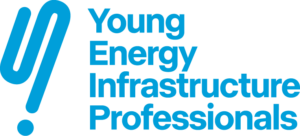
YPAC President and CEO, Molly Beckel, recently moved to TC Energy’s Toronto-based commercial team as a Marketing Representative. As part of her ongoing outreach activities, she often give talks (technical/non-technical) at educational institutions. In the past, these had all been Alberta-based.
Molly was invited to speak to the Society of Petroleum Engineers student chapter at the University of Toronto and gave her presentation on behalf of YPAC on January 22, 2020. Her presentation was interrupted about 10 minutes in by a group of student protestors (organization undisclosed). The protest was peaceful, although it was disruptive – as intended. The main concerns of the protesters were:
- Should engineering students enter into the pipeline industry?
- Are companies ensuring they are getting adequate Indigenous consent for pipeline development projects?
- Are pipelines causing irrevocable damage to the environment either through leaks or through downstream emissions created by the use of the products that they transport? Should we be stopping all fossil fuel extraction and transportation immediately?
The protestors touched on three key questions that pipeline companies and organizations like YPAC need to address. These are central questions of our times, and the next generation of leaders must answer them when building the pipeline industry of the future.
On Question 1, YPAC’s stance is clear – engineering students should enter the pipeline industry. Pipelines are the safest and most environmentally responsible way to transport the energy that we need to maintain our current way of life. We need high performing and dedicated engineers (and other professionals) to maintain and build excellent transportation systems.
On Question 2, we can’t claim to be experts, but we can have dialogue and inform ourselves about Indigenous engagement and consent for projects. We can learn more about Coastal Gas Link, about un-ceded territories, about hereditary vs elected systems of governance, and about the Indian Act (and why many Indigenous nations do not consider it to be valid legislation). We can also learn more about how pipeline companies operate in this space, which is highly regulated, complex and variable, and how, when, and why organizations like the RCMP get involved.
On Question 3, YPAC points to the excellent (and improving) safety record of pipelines for transporting energy – see https://pr19.cepa.com/. We can always do better, and are striving to do so. Fossil fuels are interwoven throughout our life from the plastics in our clothing, to electricity generated from natural gas, to consumer products shipped to us by tanker across the ocean, to cement and steel for our buildings – our life isn’t possible without fossil fuels. YPAC recognizes that high income countries use orders of magnitudes more energy than the average global citizen. We think that should (and will) change. But during that transition process, YPAC believes that pipelines must continue to be used to transport the energy we need. YPAC further believes that the export of Canadian fossil fuels is critical to solving the global tri-lemma of energy systems (energy security – energy equity – energy sustainability). Fossil fuels play a critical role in providing reliable and affordable energy, and this is fundamental to an equitable energy transition for growing markets and for the billion people without access to secure energy supplies.
After the protest began, Molly stood down, stopped her presentation, and campus police were called. The student group left after hearing that campus police were on their way. The entire incident lasted about 20 minutes. The situation was logged by the U of T. Molly finished the presentation after the protestors left.
Getting protested presents a lot of lessons. Here are some key ones:
- Ensure that you are safe, and that you stand down. It was reinforced for YPAC that there is a need to engage campus security or the police to sort these situations out. Plan ahead and be prepared.
- Many of the protestors were willing to engage in dialogue with the SPE student members. Although the initial feeling was confrontational, when individuals listened to what they had to say, it was appreciated and helped bring about insight. Pipelines are a lightning rod for how we talk about climate, indigenous reconciliation, our jobs, and the future of our energy systems.
- We can expect that more disruptions will occur at future events. The fossil fuel industry is being disrupted and so is the pipeline industry. We are seeing this in many ways from fossil fuel companies having trouble accessing capital, to shareholder activism, to employee activism.
- We need to courageously engage in these conversations. Although they are challenging, they are necessary. The dialogue that was had as a group after the protestor group left was insightful and encouraging – clearly the next generation of leaders of the industry are willing to have difficult conversations about the future.
YPAC believes that we can all learn from listening to other groups – including protesters. There is a great conversation to be had here, and we’re grateful that we get to be part of it.
